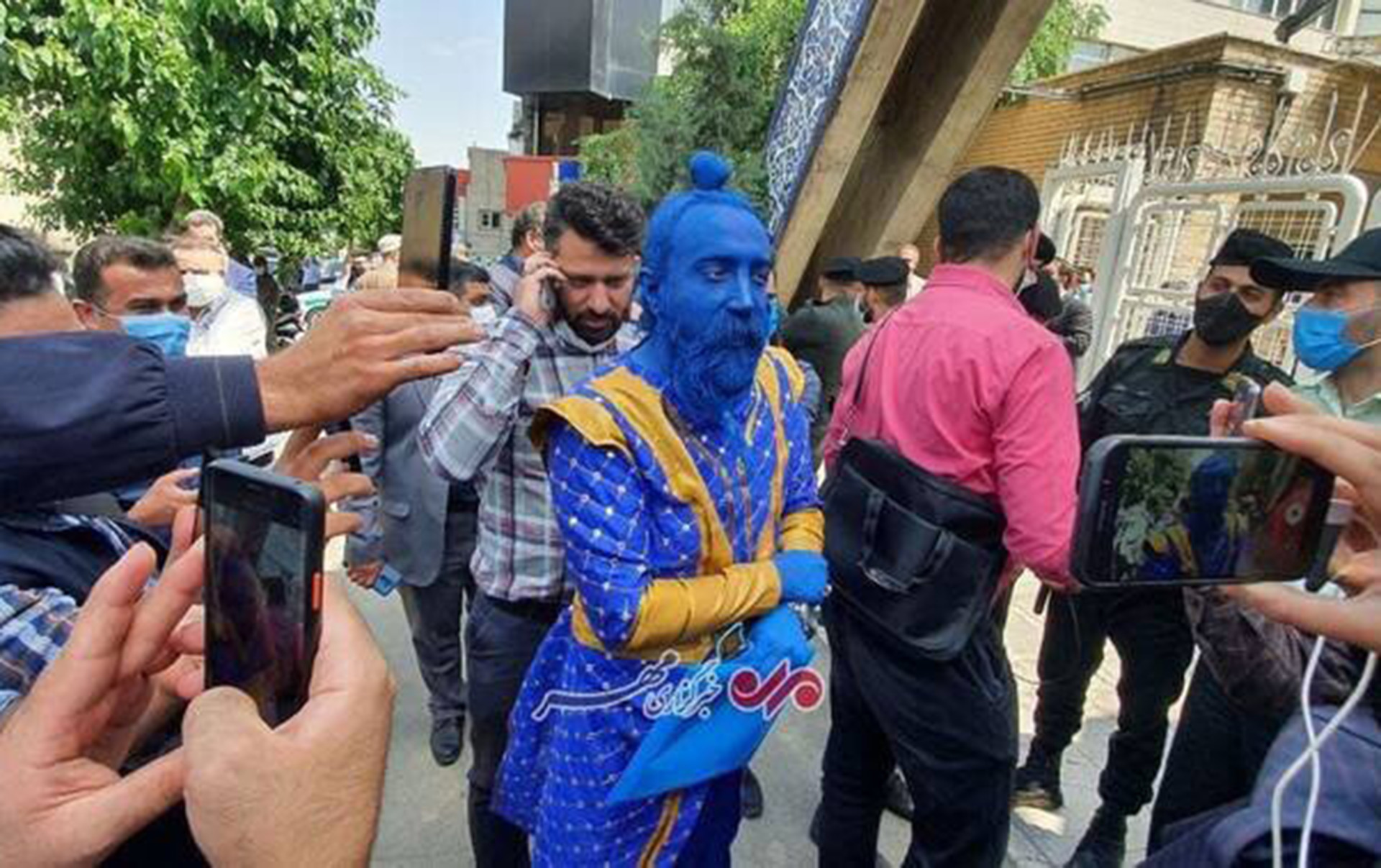Unknown Martyrs Street begins from Jihad Square in central Tehran and heads north toward the affluent neighborhoods of Iran’s capital. The broad, one-way street is where the back entrance of the imposing Interior Ministry sits. It is there that, every four years, citizens who want to run for president of the Islamic Republic come and register their candidacy, among them an increasing number of satirists and obstructionists, much to the chagrin of the authorities.
For their part, the authorities at the ministry go through the motions of setting up “registration desks” that allow any presidential hopeful to sign up, no matter how outrageous the prank.
This year, one middle-aged man showed up as the blue Genie from Disney’s “Aladdin” and declared his candidacy. Another “candidate,” Naser Forqani, a 64-year-old cleric with six wives and 18 children, announced he was running on a platform to “save Iran’s revolutionary values.” An elderly man donned a face mask made from the Iranian flag before he entered the edifice and created massive chaos in the registration hall. He then promised the bemused bureaucrats that he was running to “save Iran from the current chaos.” Then there was Javad Nasirzadeh, 63, who arrived wearing a tie and a Zoroastrian cleric’s head cover. Eager to satirize the entire process, he declared that he was “neither qualified nor do I possess the competence” to enter this race but would do so anyway.
With these characters roaming in and out of Iran’s Interior Ministry, the presidential election’s five-day registration period turned into a circus. Videos of the odd candidates have gone viral on Farsi social media, complete with commentary and memes. For Iranians, many of whom feel crushed by a dictatorial regime, all this hoopla has provided them with much-needed entertainment during hard times.
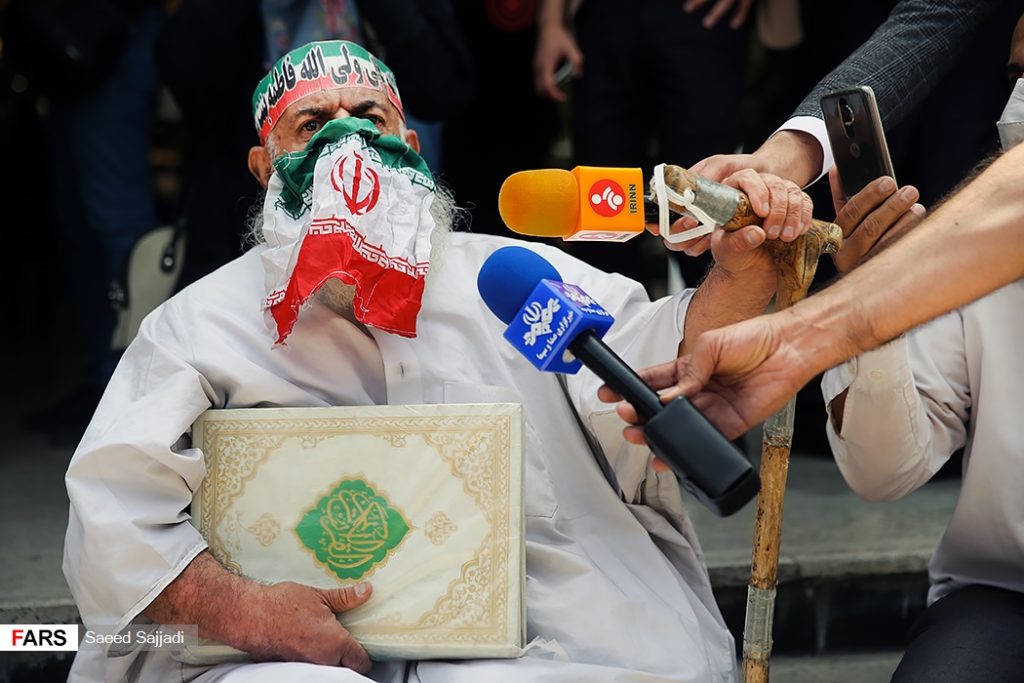
Mehdi Abadi, an Iranian political analyst living in exile in the U.K., classifies the presidential election’s ordinary candidates into three main categories. They are those who want to taunt the establishment, those who aim to freely express their opposition to the authority in front of the media, and those who simply seek attention and fame.
“If we carefully listen to what these candidates say to journalists, we can hear the voice of the suppressed,” Abadi explains to New Lines. “While in Iran, the media are rigorously censored, opposition leaders are in prison, and social media platforms are filtered, people use the platform in the Interior Ministry to raise their voice against the rulers and their governing system,” he adds.
These shenanigans have left Iran’s conservative clerics, the main force opposing the law allowing ordinary citizens to run for president, bemused and firm in their opposition to the registration period. During the 2017 presidential election, Nasser Makarem Shirazi and Mohsen Mojtahed Shabestary, two high-ranking ayatollahs, expressed their contempt for this part of the process.
“One group of people, knowingly, and to make fun of the election and to strike the system, register their names (in the election) without having any qualification. Since this causes losses to Islamic Republic (of Iran) holy system, and as it is fronting the affairs of a great country like our country, a solution must be found for this issue as soon as possible,” Shirazi, who is a religious scholar (Marja’) for Shiite Muslims, urged in a statement published by local media.
Mohsen Rezaee, a former chief commander of the Islamic Revolutionary Guard Corps (IRGC) who registered his candidacy in 2005, 2009, 2013, as well as in this year’s presidential elections, has also been advocating for an end to citizen candidacy.
“This is an insult to people and democracy, when on the first day of registration one person signs up, claiming he is God; on the second day another person arrives with the claim of being the prophet; and a third person registers his child’s name for the election. And then the media take photos and videos of these psychos and give them coverage as genuine election candidates,” he wrote in an Instagram post.
The five-day bonanza seems to be much more than mere tomfoolery. According to political scientist Farhad Misaghian, a professor at Iran’s Islamic Azad University, it is subversive behavior that has been on the rise since 2001, when the reformist president Mohammad Khatami’s first term in office ended. Earlier, in 1997, Iranians had embraced a “reformist” path in the hopes of opposing the conservative (or hard-line) political discourse that has dominated Iran’s politics since the early 1980s. In retrospect, ordinary Iranians during that election cycle must have shocked the establishment when reformist Khatami won, securing over 69% of the vote. Yet despite this endorsement, the outcome of that victory delivered few — if any — tangible reforms and left the conservatives more agitated.
“Before the 2001 presidential election, we had never seen such a rush by ordinary people to register their names to run for the election,” said Misaghian, referring to the 814 people who signed up to run for president in 2001.
“If we analyze the presidential elections data, we will notice that in the seven presidential elections before 2001 the number of all registered candidates together had reached 736, which is still lower than the number (of candidates) in 2001 alone. That year a political campaign was running to disparage the president’s status in Iran,” he added.
Indeed, during Khatami’s term the conservatives, the IRGC, and all institutions associated with the supreme leader launched an aggressive campaign to diminish the president’s status in Iran’s governing system. State TV, the only broadcaster in the country, aired several programs against the president, and pro-Khatami dailies were shut down. Intellectuals and student activists who supported Khatami faced long prison sentences, and the prominent theorists behind his reform movement were either assassinated, imprisoned, or exiled.
This year, conservatives appear to be putting the final nail in the coffin of presidential powers after the country’s Guardian Council took steps to ensure that the Republic’s next president will be their staunchest loyalist: Chief Justice Ebrahim Raisi. It has been no secret that the supreme leader and the IRGC’s first generation of commanders fully support Raisi, known for his resolve to “shed blood” when necessary. In 1988, he was one of the judges who carried out the infamous mass execution order issued by then-Supreme Leader Ayatollah Ruhollah Khomeini against some 5,000 leftist political prisoners, arrested during the first years after the 1979 revolution, but had never stood a fair trial. (The prison massacre happened at the end of the Iran-Iraq War, when an incursion of MEK backed by Iraq was defeated.)
To make this power grab airtight, the council disqualified from running former president Mahmoud Ahmadinejad, former parliament speaker and “inner-circle” darling Ali Larijani, and the current vice president Eshaq Jahangiri, along with the 500 ordinary (and satirical) people who had registered to run.
Iranian media has lined up in support of Raisi, and during reporting on these events New Lines learned that IRGC commanders have been contacting some journalists inside Iran and warning them about “consequences” if they were to disparage Raisi in their coverage.
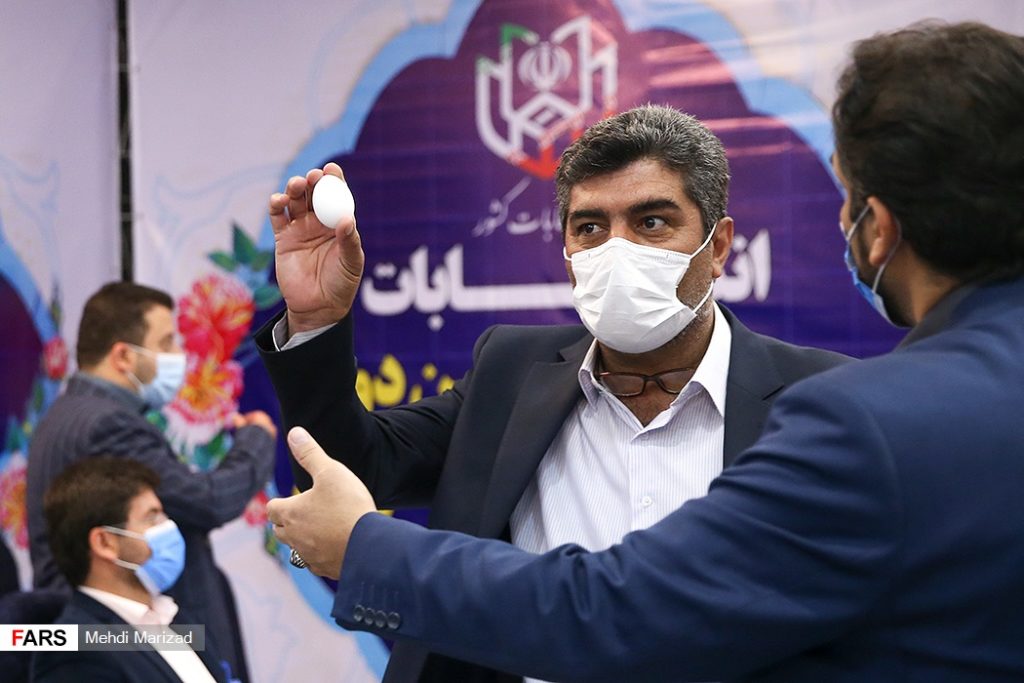
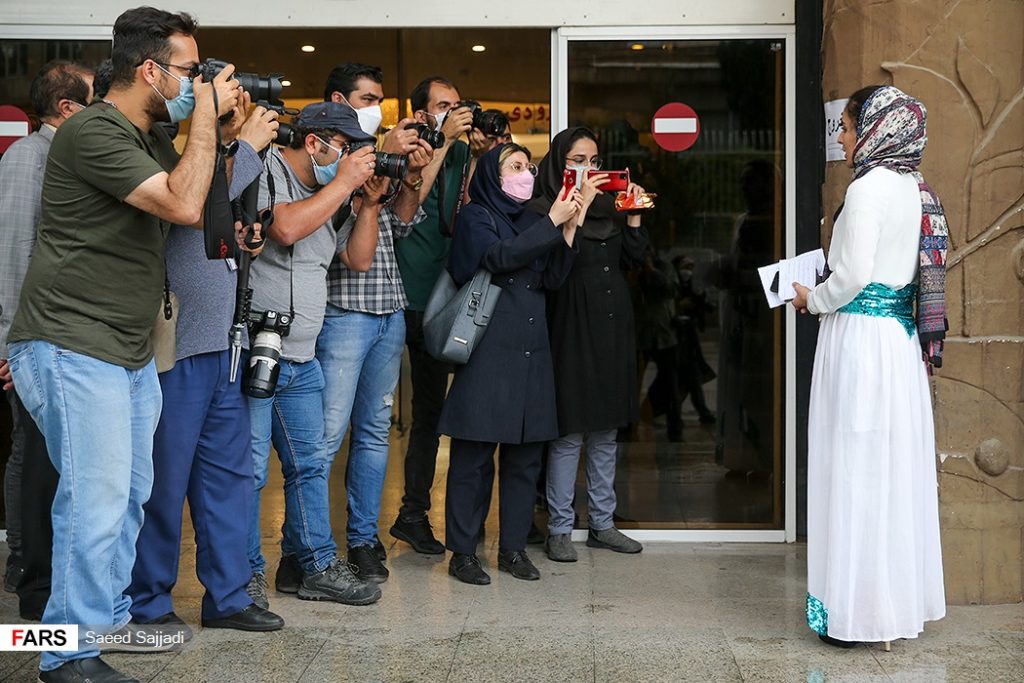
Among the seven qualified candidates for the June 18 presidential election, none has the political background or the popular support to voice the slightest disagreement with decisions made by the supreme leader. Even by Islamic Republic standards, this centralized grip on power is unprecedented.
“The supreme leader has always had conflicts with his presidents,” Abadi says. “Even during the eight years that Hassan Rouhani was president, Khamenei acquiesced to the centrists who negotiated with the U.S. That decision was against his ideology and the will of conservative IRGC commanders. But from now on, the presidential office will (simply) become the executive branch of the supreme leader’s office.”
The near-absolute power now concentrated in the hands of the supreme leader is a long cry from where things stood 20 years ago, when the conservatives themselves appeared to be pushing for, and encouraging, ordinary citizens to run in parliamentary and presidential elections.
Unlike the optimism sometimes expressed in international media about Iran’s reformists, most Iranians feel that after 12 presidential elections they have little to show for it.
“Iranian society is depressed, and its laughter is not out of joy,” says Roya Amir Ahmadi, Iranian sociologist at Iran’s Center for Social Studies. “This is the hysterical laughter of the deeply depressed that we’re hearing. During these five days people have laughed at their fellow citizens who played the fool. It’s as if they are laughing at themselves because they can’t do anything to change their situation,” she adds.
The 2019 revolts in Tehran and other major cities around the country were the result of extreme economic pressure. Since the 2018 U.S. withdrawal from the nuclear deal with Iran, after which severe economic sanctions were imposed, ordinary Iranians have grown more desperate to survive and put bread on the table. These were the same people who had earnestly flocked to voting centers in 2013 and 2017 in support of current president Hassan Rouhani, who promised to normalize political relations with the West.
In 2015, after years of negotiations, an agreement was inked, and Iran curbed its nuclear program in return for the removal of international sanctions. But the short-lived agreement, which died when President Donald Trump withdrew from it, resulted in sanctions against the country that were harsher than before. Many Iranians were crestfallen, as if their final hope to harness the future was dashed.
Even during the ecstatic days of Iran’s revolution, when Islamists had not yet gained full political power, the “reformist” approach to negotiate power sharing with the conservatives had come to a premature end. In 1980, liberal nationalist Abolhassan Banisadr won the Islamic Republic’s first presidential election without the usual candidate vetting process by the Guardian Council. (It was not yet required.) But 16 months later, he was impeached by a (conservative-controlled) parliament and forced to flee the country.
The Guardian Council was established in July 1980 as a constitutional assembly, tasked with ensuring that any laws passed by parliament are consistent with shariah, or Islamic law. But year after year, conservative Islamists tightened their grip on power through their control of the council, which now oversees all major institutions in the country.
Six of the council members are hand-picked by Supreme Leader Ali Khamenei. The other six are chosen by legislators from a list introduced by the country’s head of justice, who himself is a supreme leader appointee.
Despite these tactics, the conservatives did not win the 2001 election. In subsequent years, they secured wins by controlling who could run for president through the now-mandatory approval process administered by the council, which vets all candidates before approving their names for presidential or parliamentary elections.
Iran’s first reformist-dominated parliament (2000-2004) accelerated the council’s drive to wield far-reaching power. Unhappy about proposed reforms, the council invalidated most of the laws passed by the elected officials, disqualified over 2,000 reformist candidates who had registered to run in the next parliamentary election, and purged over 80 incumbent legislators.
Public sentiment about the elections was not always so cynical in the Islamic Republic. In 2009, following the catastrophic, four-year presidency of the ultra-conservative Ahmadinejad, the country had election fever. On June 12, 2009, over 39 million Iranians (or 85% of eligible voters) went to the polls, eager to have their voices heard. Yet somehow, Ahmadinejad was reelected, which led to months of demonstrations. A deadly crackdown on the Green Movement followed, as well as the house arrest of Ahmadinejad’s two reformist rivals, Mir Hossein Mousavi and Mehdi Karroubi.
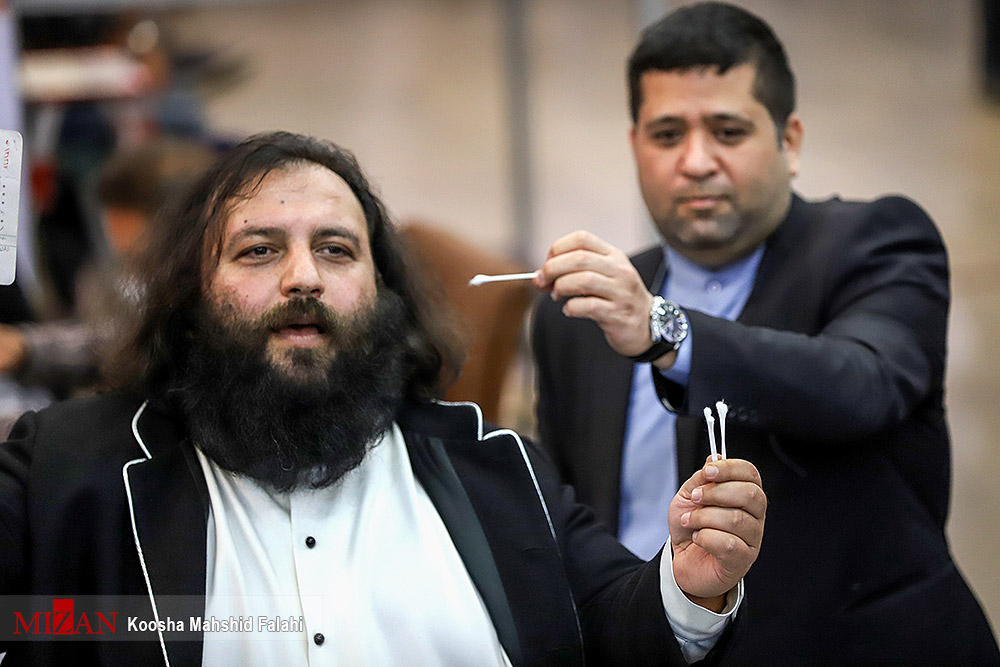
This marked a turning point for Iranians, which is why today, instead of voting for a candidate, many prefer to lampoon the electoral process, which they see as rigged and incapable of delivering meaningful change. “Presidential candidate” Morteza Derakhshan embodies this cynicism: With no political experience and no chance of garnering any meaningful support, Derakhsahn registered his candidacy just before the cutoff date. Smiling broadly under a big beard and long hair, he told journalists: “If I’m not qualified, I won’t recognize the election’s credibility. And if I am qualified, I won’t recognize the Guardian Council’s credibility.”
In response to a journalist who humored him and asked to hear his plans for the country if he were to win, Derakhsahn again captured national sentiment: “At the moment, I’m hungry.”



